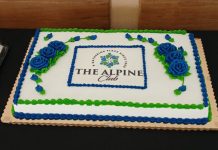Our Story: Kailyn and Charis
On May 10, 2012, our 3-year-old daughter Kailyn, was diagnosed with Mitochondrial Disease. My
husband and I were told that if not treated, this disease could eventually lead to her early death. On
August 30, 2012, we found out that our other daughter, Charis, just one year old, also carries the same
disease.
Ever since we married, my husband and I had wanted a big family, and shortly thereafter we were
blessed with the news that I was pregnant. After an easy pregnancy, I gave birth to a beautiful,
Our Story: Kailyn and Charis
On May 10, 2012, our 3-year-old daughter Kailyn, was diagnosed with Mitochondrial Disease. My
husband and I were told that if not treated, this disease could eventually lead to her early death. On
August 30, 2012, we found out that our other daughter, Charis, just one year old, also carries the same
disease.
Ever since we married, my husband and I had wanted a big family, and shortly thereafter we were
blessed with the news that I was pregnant. After an easy pregnancy, I gave birth to a beautiful,
seemingly healthy, baby girl—Kailyn. But within a year, we started noticing signs of concern and our
world was quickly turned upside down.
When Kailyn was one-year old, my husband and I expected to see our little girl walk and begin to
speak. Kind friends and family reassured us that she was fine. As time passed, our concerns grew
which led us to seek testing. We waited until Kailyn was 18 months old to start any kind of testing. For
21 months, doctors conducted a long series of tests to figure out what was wrong. All the while, Kailyn
could not walk unassisted, her talking consisted of single syllable sounds, she had acid reflux and
asthma, and her reflexes were very slow.
It took us two and a half years to get a diagnosis for Kailyn—two and a half years of MRIs, tubes in
her ears, an echocardiogram, a sleep study, two neurologists, a geneticist, x-rays, vision and hearing
tests, blood tests and numerous other specialists. Finally after all these tests, my husband and I were sat
down in a very gloomy doctor’s office and were given the devastating news that our daughter has an
invisible killer called NARP, a mitochondrial disease. We soon found out that our second daughter
also has this deadly disease.
Like all moms, I had high hopes for my children. I hoped and expected that my children would be
healthy, make friends, go to school, go to college, and eventually would have families of their own.
Given their condition, this expectation is merely a dream—if they live past high school, people with
high percentages of NARP typically have an intellect that will not likely exceed the age of 16, making
the goals of a college degree or a future family nearly unattainable. Currently, there are no treatments;
there is no cure for mitochondrial disease.
The day we received the diagnosis, we left the doctor's office with instructions to start the "mito
cocktail" of supplements, continue with occupational, speech, and physical therapy and prevent them
from getting sick. We walked out with a huge, gaping hole in our hearts. Within a matter of seconds,
this huge piece was ripped out, and we still haven't quite figured out how to put it back together. On a
positive note, our hearts are bigger now in that our daughters get the best of us each and every day,
because we don’t know when our last day with them will be.
Our beautiful daughters are lucky; other than not walking or talking at age level, they are happy and
relatively healthy. Our doctor says that for now, they have a mild case of a disease that can one day
take them from us. Today, we get to hear our daughters say "I wuh yuh", watch them laugh when we
make silly faces and light up when we enter the room. Many other "mito" kids can't even roll over,
swallow their food or watch their favorite cartoons on TV. There are many days we don't feel so lucky.
The doctors’ appointments, the exhaustion, and the fear can get to us. But then we see our beautiful
angels smile, laugh and play and it helps us move out of our sadness. We cherish our girls every day,
and they are our heroes. They push us to keep going through our daily struggles and strive to be the
best parents we can be.


![MitoRegflyer[4].jpg MitoRegflyer[4].jpg](https://thealpinesun.com/wp-content/uploads/2013/05/MitoRegflyer4-696x463.jpg)










